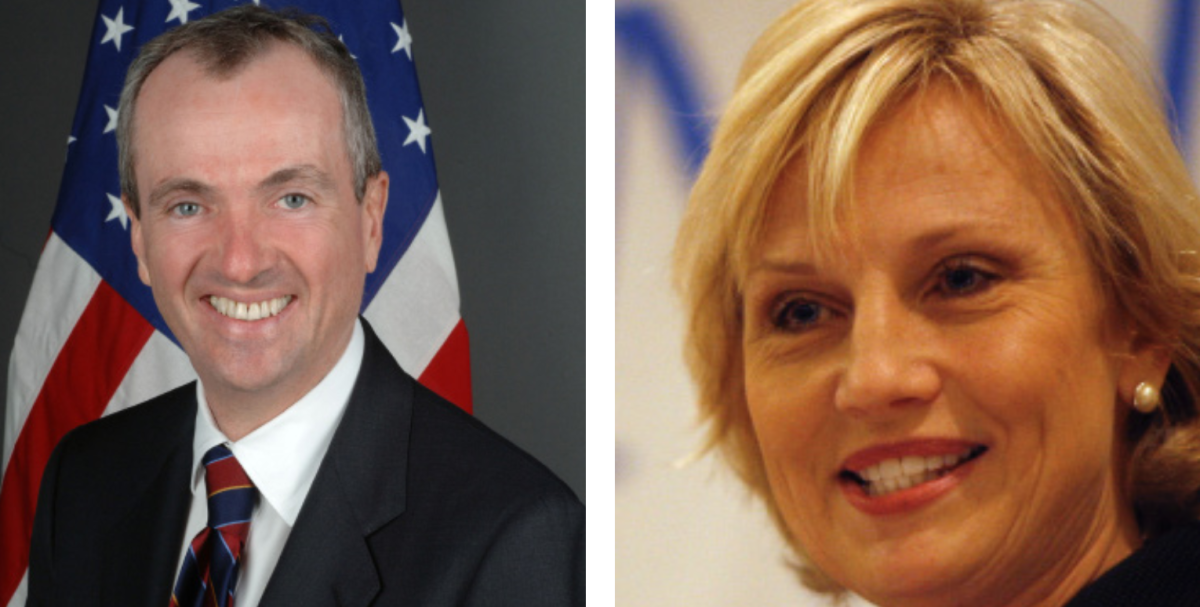NJPAC recently hosted the first debate for the soon to be vacant position, Governor of New Jersey in early October. Democrat Phil Murphy, former U.S. Ambassador to Germany and Goldman Sachs executive, and Republican Kim Guadagno, Governor Christie’s Lieutenant Governor, debated prior to the November 7 election.
Five other third-party candidates are being considered in the gubernatorial election, however they did not raise the $430,000 minimum to qualify to be on the debate stage.
The debate covered a broad spectrum of topics such as property tax, one of the key issues for voters in New Jersey, where Guadagno promised to lower taxes to make New Jersey an affordable state to live in. Murphy, however, has plans to fully fund the state’s education system which he says is underfunded by nine billion dollars, continue to subsidize healthcare, and fund the impoverished state employee pension program.
Murphy plans to raise taxes throughout New Jersey, focusing mainly on the wealthy. They found common ground on plans to invest in infrastructure throughout the state, but continued to differ in opinion on gun control, marijuana, and the minimum wage. Murphy wants stricter gun laws, legal marijuana, and a $15 minimum wage phased in. Guadagno believes that law abiding citizens should not be further restricted from purchasing firearms, believes that marijuana should only be decriminalized, and feels that a $15 minimum wage would reduce the number of jobs available to the people for whom the minimum wage increase would help and would also raise prices for everybody else.
On the recent controversy over DACA and uncertainty of the status of citizens born to illegal alien parents, Phil Murphy wants to fight back and turn New Jersey into a “sanctuary state,” while Kim Guadagno says that she will uphold the laws as they are written and will not endanger the people of New Jersey.
As evidenced in the debate and the posters around Newark displaying the words “Stop Trump” by voting for Phil Murphy, Murphy seems to be utilizing the unpopularity of President Trump and Governor Christie in his campaign for Governor. The latest polls have Christie’s popularity at a New Jersey all-time low of 15%, and as Lieutenant Governor for the last eight years Guadagno has become closely associated with him.
On Guadagno’s proposal to reduce government spending and alleviate property tax burdens from the middle class, Phil Murphy responded by saying, “You have been alongside Governor Christie every step of the way for 2,821 days – if it’s such a good idea where have you been?” In rebuttal to Murphy’s consistent comparison of Guadagno to her Republican associates, the Lieutenant Governor said, “The inconvenient truth for Phil is that Chris Christie is not on the ballot in November, I am.”
Murphy’s criticisms, though, come in his lack of real experience in dictating policy for U.S. citizens, as well as his lack of detail in his plans to implement the social program investments he has proposed. When asked how he plans to fund the nearly bankrupt pension program for state employees, Murphy replied, “We have a very credible plan to . . . fully fund the pensions over the next several years as rapidly as possible, at least as fast, I hope a lot faster than this administration has been funding them.”
Around the NJIT campus, the most common responses to the question, “What opinions do you have on the upcoming gubernatorial election?” include a lack of understanding of the word “gubernatorial” and the race in general. Freshman Resident Representative and Industrial Engineering major, Jeremy Bedient, said, “Kim seems like more of the same, and I don’t really want the same. On the other hand, Phil seems like an establishment candidate without any plans to back what he’s saying.”
It seems that, like in last November’s election, those who are informed are often voting based off of a dislike of an opposing candidate rather than a strong connection with the candidate they are voting for.



























